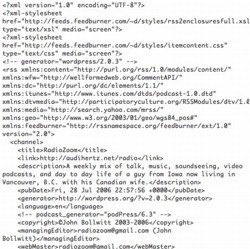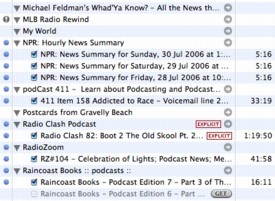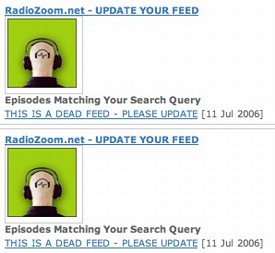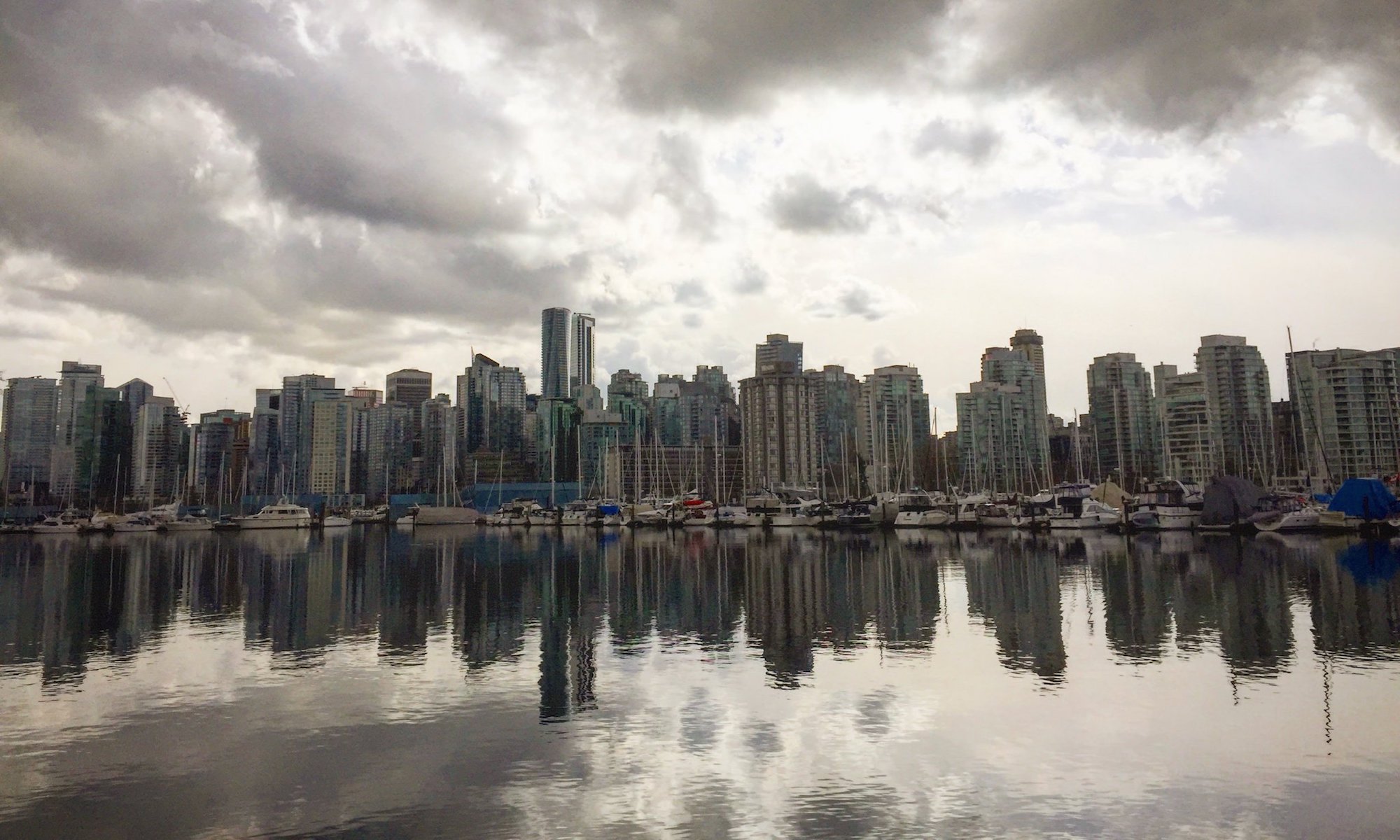 As of today at noon, I have made a change to my podcast feed that could have some hefty impact. Allow me to further explain.
As of today at noon, I have made a change to my podcast feed that could have some hefty impact. Allow me to further explain.
When I first started out with my adventures into podcasting, I did my RSS feed[wiki] by hand. Well, not literally, but I wrote the code myself in the way that I have learned to do things most of my life. I surfed all over the web to find tutorials and hints, looked at the code of what other people were doing, and then applied that to my stuff until it worked. Doing all the audio was a piece of cake. This part, on the other hand, took some learning.
In the history of RadioZoom, there have been three different feed addresses, the one that I currently run through FeedBurner being the last[http://feeds.feedburner.com/radiozoom]. The first version was rough, to say the least. But was it Feed Validator compliant? Not at all. That brought on the second version, which brought it up to standards and changed the address slightly, but was still hand coded. FeedBurner was the end solution that took the blog feed for the podcast and turned it into something podcatchers could fully understand, all being done automatically.
I stopped doing all manual updates around sometime in early 2005. I sent out alerts to subscribers to those feeds around that time, feeling pretty good about the switch working out in the end. About the time that I moved to Vancouver, I noticed that I was still getting errors from some one or some thing trying to get to those feeds. I decided to try redirects, but heard from fellow podcasters that this solution was working for about half of the services people were using to subscribe to podcasts.
 In an experiment, I decided to re-establish those feeds by simply copying and pasting from FeedBurner into those two addresses. Within a few days, my number of downloads shot up by one third. Thus started an additional process to publishing my podcasts, manually updating not one, but two feeds.
In an experiment, I decided to re-establish those feeds by simply copying and pasting from FeedBurner into those two addresses. Within a few days, my number of downloads shot up by one third. Thus started an additional process to publishing my podcasts, manually updating not one, but two feeds.
It’s not hard to copy and paste the code, but there were times that I forgot to do this. When that would happen, and I didn’t update the feed until the next episode after the previous one published, the subscribers to those “manual feeds” were suddenly having two, new podcasts show up in their aggregator. Not a big deal? Maybe, but I get bothered by it.
There’s nothing worse than letting listeners down. Yeah, this is podcasting and everything gets time shifted or however you want to explain the medium, but for those few people out there that like getting it when it’s fresh, this is unacceptable. It’s not so much that what I have been putting out is life saving information or time sensitive, but RSS was, essentially, invented for people to get data as soon as it was available, right?
 So, as of today, I’ve trimmed the fat some more. There is just the one feed. In fact, this change happened a few weeks ago, but I posted an announcement to anyone still subscribed to those feeds. However, all of that is gone now. It does not make sense to keep those afloat anymore.
So, as of today, I’ve trimmed the fat some more. There is just the one feed. In fact, this change happened a few weeks ago, but I posted an announcement to anyone still subscribed to those feeds. However, all of that is gone now. It does not make sense to keep those afloat anymore.
For those that really want the feed, they’ll do a search. The bots can keep checking them, but they won’t find anything. Could this hurt my podcast in terms of subscribers and listeners? Absolutely. It’ll take some work to recover some lost ground. If anything, that gives me more of an excuse to do some promotion, which there is never a bad time for.
This is an issue that plagues a lot of podcasters. There hasn’t been an easy solution to this that I can find. Well, at least something that doesn’t include about four, various work arounds that doesn’t ensure a complete success. It’s something to carefully think about when establishing a podcast or moving your feed. I’m just ready to say, enough is enough.
